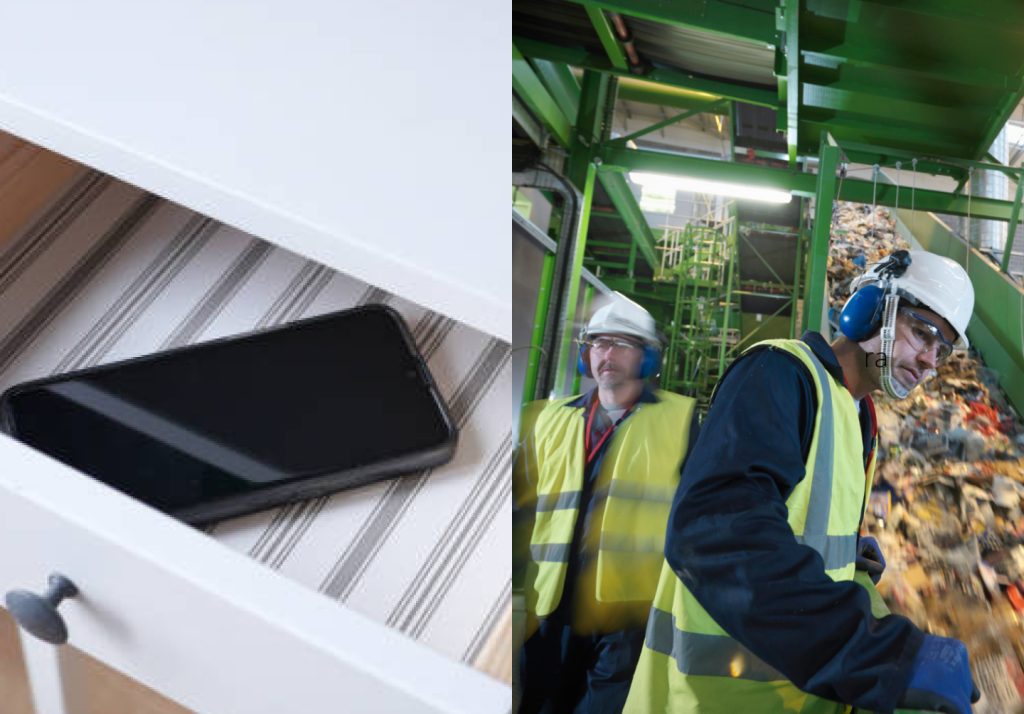
Have you ever thought about what happens to your old mobile phone when you upgrade to the latest model? Most of us have at least one or two outdated phones stashed away in a drawer, forgotten as soon as we get our hands on the latest technology. We often think of these old devices as obsolete relics, but they don’t just fade into the background—they become part of the growing mountain of electronic waste (e-waste). This accumulation of discarded gadgets contributes to environmental pollution, as many components in our phones are not biodegradable and contain toxic substances.
But there’s a silver lining. Mobile phone recycling is not just an environmental necessity; it’s also an opportunity. By recycling our old phones, we can recover valuable materials, reduce the need for new resources, and prevent harmful chemicals from leaching into our environment. Understanding how to properly recycle your phone not only helps mitigate e-waste but also supports the broader effort of sustainable living. So, before you toss that old device into the trash or leave it to gather dust, consider the positive impact recycling can have. Let’s explore the world of mobile phone recycling and discover how you can be part of the solution.
Why is mobile phone recycling important?
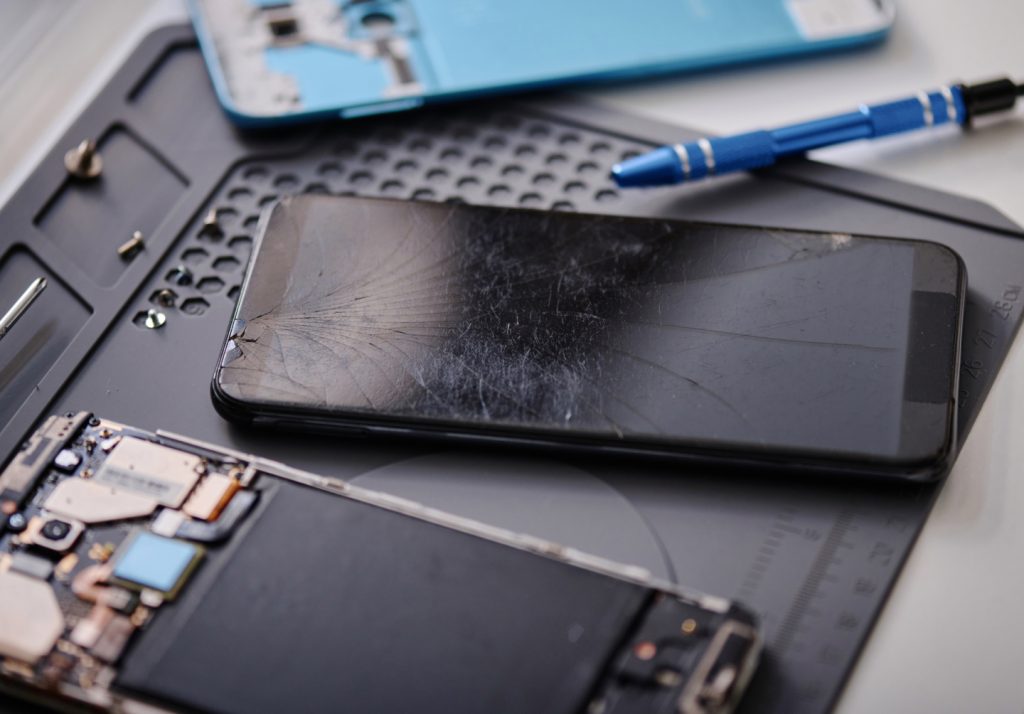
Mobile phone recycling is more than just clearing out that cluttered drawer; it’s about sustainability, resource conservation, and protecting our environment. Mobile phones are composed of precious and rare metals like gold, silver, and palladium, as well as harmful substances such as lead and mercury. When phones are simply discarded, these metals go to waste, and the hazardous materials can leak into the environment, causing pollution and health risks. Recycling these devices allows us to recover valuable materials and prevent harmful substances from contaminating the earth.
Recycling also reduces the demand for mining raw materials, which is both energy-intensive and environmentally damaging. Mining for precious metals involves extensive use of water and energy and often leads to deforestation and loss of biodiversity. As a result, every phone recycled is not just a win for your pocket but a significant step toward reducing the carbon footprint and conserving natural resources. As environmental activist Annie Leonard said, “There is no such thing as ‘away.’ When we throw anything away, it must go somewhere.” Recycling ensures that our discarded phones don’t end up polluting the environment.
What percentage of people actually recycle their phones?
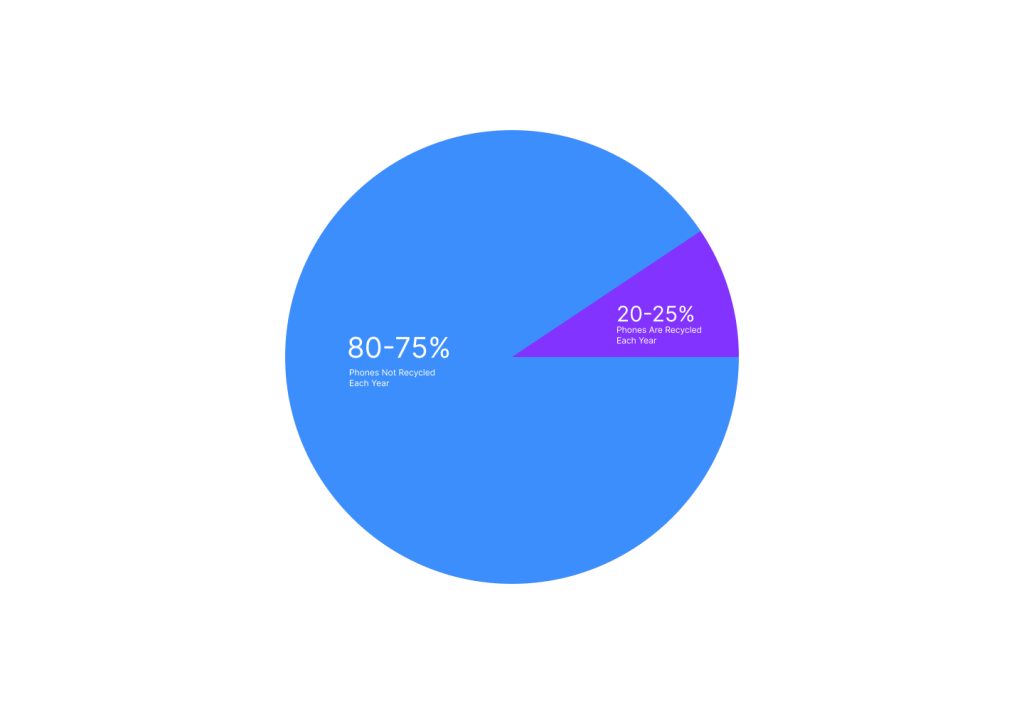
Despite the clear benefits, only a small percentage of people recycle their phones. Statistics show that only about 20-25% of mobile phones are recycled each year. This low recycling rate can be attributed to a lack of awareness, the convenience of storing old phones “just in case,” and concerns about data security. Many people hold onto their old devices, believing they might need them as a backup, or simply because they don’t know how or where to recycle them.
How many unused phones are typically found in households?
In the UK, it is estimated that the average household has at least two to three unused mobile phones lying around. When you think about the entire population, that’s millions of unused devices that could be recycled. Globally, the situation is even more alarming. A report by the International Telecommunication Union (ITU) suggested that there could be over 1.5 billion unused phones sitting idle in people’s homes worldwide. These forgotten gadgets represent not only wasted materials but also lost opportunities for recycling and resource recovery.
What impact does phone recycling have on the environment?

The impact of recycling mobile phones is significant. For every million phones recycled, we can recover approximately 35,000 pounds of copper, 772 pounds of silver, 75 pounds of gold, and 33 pounds of palladium. These recovered materials can be reused to make new electronics, reducing the need for new mining operations, which, as mentioned earlier, are energy-intensive and damaging to the environment. Furthermore, properly recycled phones prevent toxic substances from seeping into the soil and water systems, safeguarding both human health and the natural world.
How does mobile phone recycling work?
Recycling a mobile phone is a multi-step process designed to recover valuable materials and reduce electronic waste. Initially, when you submit your old device to a recycling program, it undergoes a sorting process. This step involves evaluating the phone’s condition to determine if it can be refurbished or if it needs to be dismantled. If the phone is still operational and in good condition, it may be refurbished. Refurbished phones are cleaned, repaired, and tested to ensure they are fully functional before being resold. This not only helps extend the device’s lifecycle but also offers affordable options for new users, thereby reducing electronic waste.
If the phone is deemed unsuitable for refurbishment, it is disassembled to separate its components. This includes removing the battery, circuit boards, screens, and other parts. Each component is then processed to recover valuable materials such as metals, plastics, and glass. For instance, circuit boards contain precious metals like gold and silver, while batteries may contain materials that need special handling due to their toxic nature. The extracted materials are then sorted and sent to various facilities where they are recycled or repurposed. This approach not only recycles the components but also ensures they are used in manufacturing new products, contributing to a circular economy and minimizing overall waste.
What happens to your phone after It’s recycled?
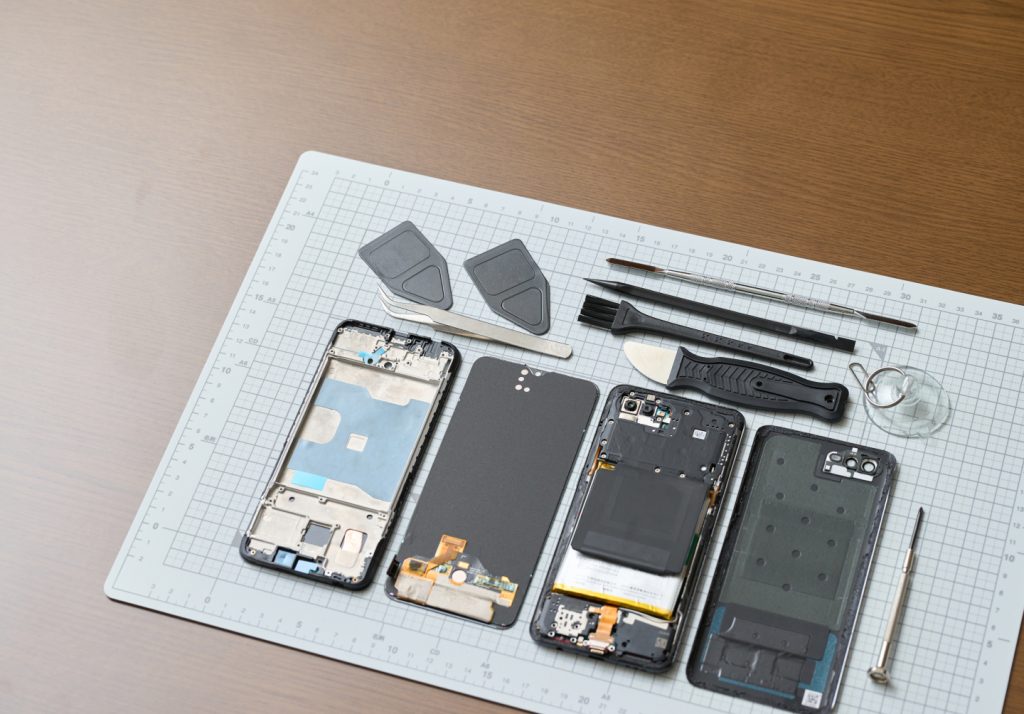
After a phone is disassembled, its components are processed based on their material type. Metals, including gold, silver, and copper, are melted down and purified to remove impurities. These purified metals can be used to manufacture new electronics or other products, reducing the need for raw material extraction. Plastics are shredded and cleaned before being reprocessed into pellets that can be used to create new plastic products, from containers to parts for other electronics. Batteries undergo a specialized process to neutralize and safely manage the toxic chemicals they contain. This careful handling prevents harmful substances from leaching into the environment and ensures that all valuable materials are recovered and repurposed.
The final step involves sending these recovered materials to manufacturers who use them to create new products. This process helps close the loop in the recycling chain, ensuring that materials from old phones are reused rather than ending up in landfills. By repurposing these materials, the environmental impact of producing new devices is significantly reduced, contributing to a more sustainable and responsible approach to technology consumption.
Can damaged or broken phones be recycled?
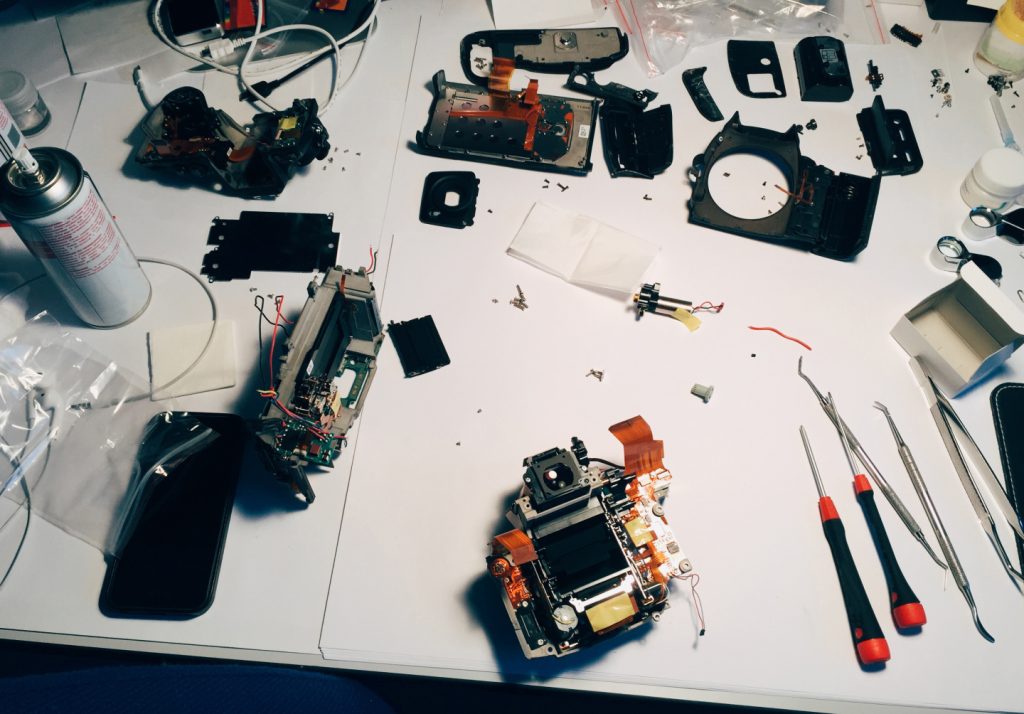
Yes, damaged or broken phones can definitely be recycled, and in many cases, they are just as valuable as fully functional devices. Even if a phone no longer powers on or has a cracked screen, it still contains valuable materials such as gold, silver, and copper. These materials can be extracted and reused in new devices or other products. Many recycling programs and facilities are equipped to handle non-working phones and have specialized processes for extracting components and valuable materials from them.
Some recycling programs focus specifically on broken or non-functional devices, ensuring that even phones that are beyond repair do not go to waste. These programs carefully dismantle the phones to retrieve usable parts and materials, making sure that no valuable resource is left behind. By recycling broken phones, you contribute to the recovery of precious materials and support the reduction of electronic waste.
What are the benefits of recycling phones instead of discarding them?
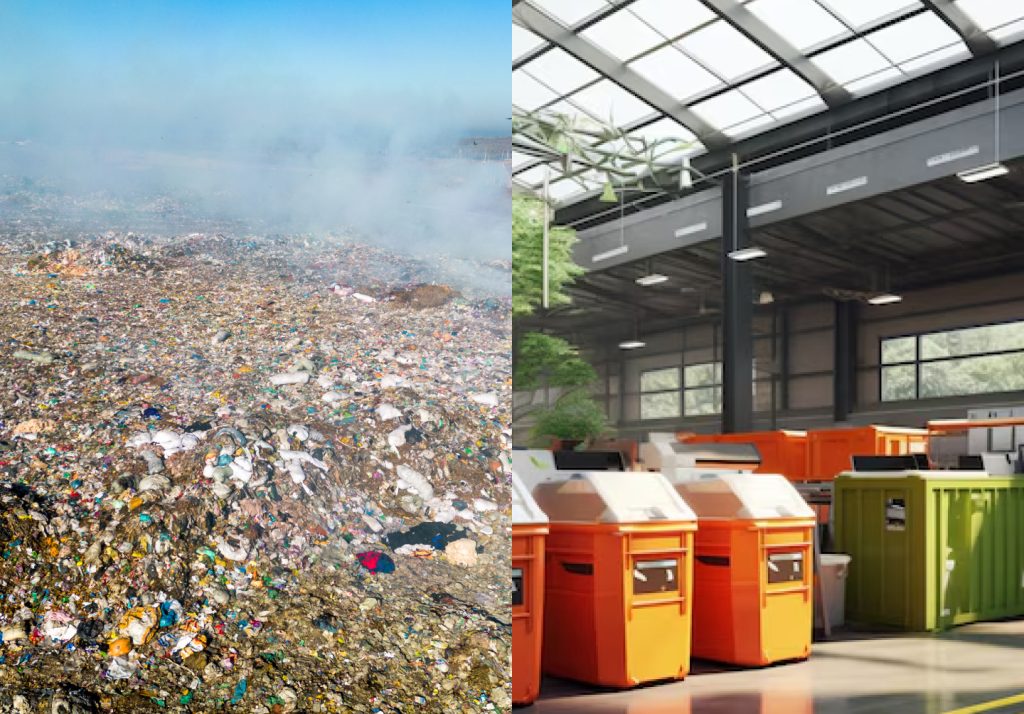
Recycling phones offers several important benefits:
- Conservation of Resources: By recycling, we recover precious metals and materials that would otherwise require new mining operations. This helps conserve natural resources and reduces the environmental impact associated with raw material extraction.
- Reduction of E-Waste: Recycling helps address the growing problem of electronic waste, which poses environmental and health risks due to the hazardous substances found in many electronic devices. Proper recycling ensures that these substances are managed safely and reduces the overall volume of e-waste.
- Economic Incentives: Many recycling programs offer cash or trade-in deals for old phones. This provides an economic benefit to consumers, turning outdated devices into financial gain while also supporting responsible recycling practices.
- Data Security: Reputable recycling programs prioritize data security by ensuring that all personal information is wiped from devices before they are recycled or refurbished. This provides peace of mind to users, knowing that their data is protected and securely erased before their device is processed.
What are the recycling schemes offered by mobile network providers?
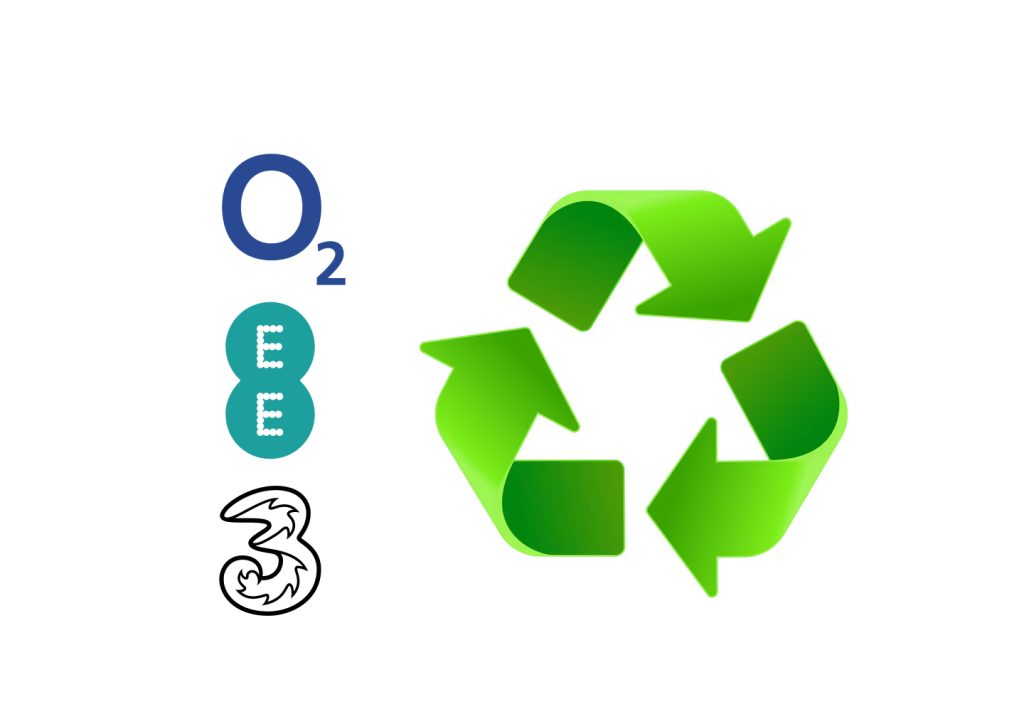
Many mobile network providers have established recycling schemes to make it easier for customers to dispose of their old devices responsibly. These programs not only help you recycle your phone but also offer financial incentives and convenience.
O2 Recycle: O2’s recycling scheme is designed to be user-friendly. To participate, simply visit their website, find your device, and get an instant quote. O2 will provide a free postage bag for sending in your old phone. Once the phone is received and inspected, O2 will process your payment, which typically arrives within a few days. This straightforward process ensures you get cash for your old device while contributing to a greener environment.
EE Recycle: EE offers a flexible trade-in program where customers can either drop off their old devices at an EE store or mail them in. The condition of the phone will determine whether you receive a voucher or cash back. This program makes it easy for users to recycle their devices at their convenience, whether they prefer in-person or mail-in options.
Vodafone Trade-In: Vodafone’s recycling scheme provides both in-store and online options. You can bring your old device to a Vodafone store or opt for a free courier service to send your phone in. Vodafone offers competitive prices for old phones, ensuring you get a fair return for your device while supporting responsible recycling practices.
Three Recycle: Three’s recycling program allows customers to trade in their old phones online. After receiving a quote for your device, you send it in for assessment. Once the phone is evaluated, payment is made directly to your bank account. This method offers a seamless way to recycle your old phone and get paid promptly.
What options do mobile phone manufacturers provide for recycling?
Apple Trade-In Program: Apple’s trade-in program is comprehensive and user-friendly. You can trade in a wide range of Apple products, including iPhones, for credit toward a new purchase or an Apple Store gift card. Apple ensures that all traded-in devices are recycled responsibly, which aligns with their commitment to environmental sustainability.
Samsung Trade-In Program: Samsung offers a trade-in program where you can receive a discount on a new Samsung phone by trading in your old device. The program also accepts phones from other brands, making it accessible to a wider audience. Samsung’s recycling program is designed to handle devices responsibly, whether they are refurbished or recycled.
How can you easily recycle your phone?
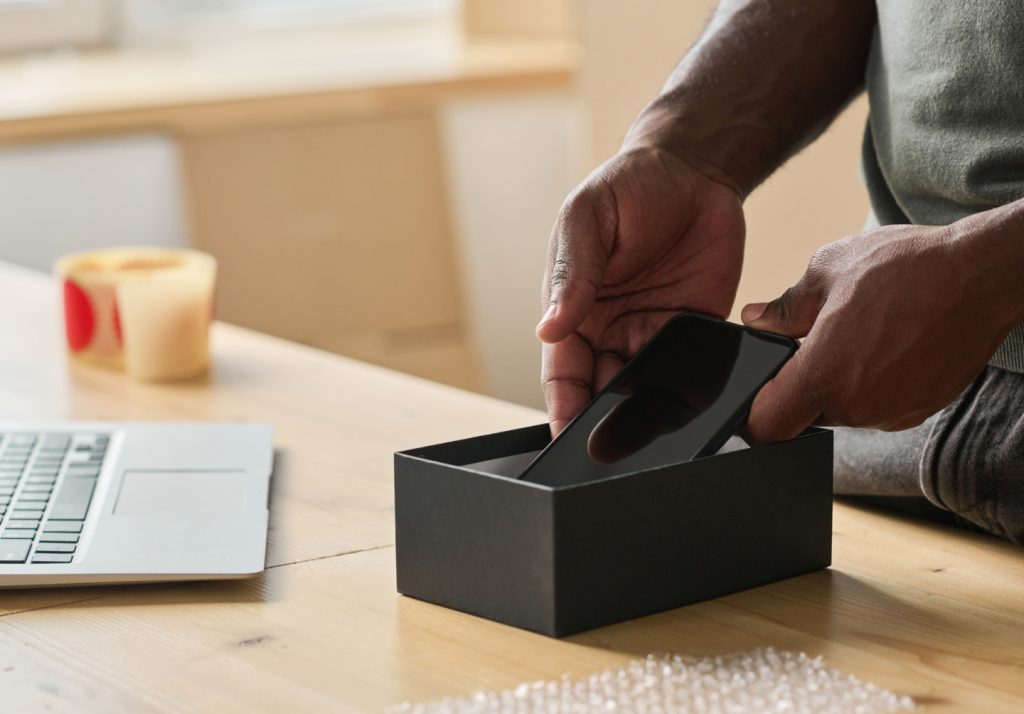
- Recycling your phone can be a straightforward process if you follow a few key steps. First, choose a reliable recycling program that suits your needs. This could be through your mobile network provider, phone manufacturer, or a third-party recycler. Many recycling programs offer convenient options, such as free postage bags or easy-to-follow instructions on how to send in your device.
- Next, securely package your phone according to the guidelines provided by the recycling program. This often involves using a prepaid shipping bag or following specific packaging instructions to ensure your device is protected during transit.
- Before sending your phone, make sure to back up all your important data. This can be done using cloud services like Google Drive or iCloud. After backing up, perform a factory reset on your phone to erase all personal information. Don’t forget to remove any SIM or memory cards. Verifying that these steps are completed will help protect your privacy and ensure a smooth recycling process.
Where can you recycle your phone?
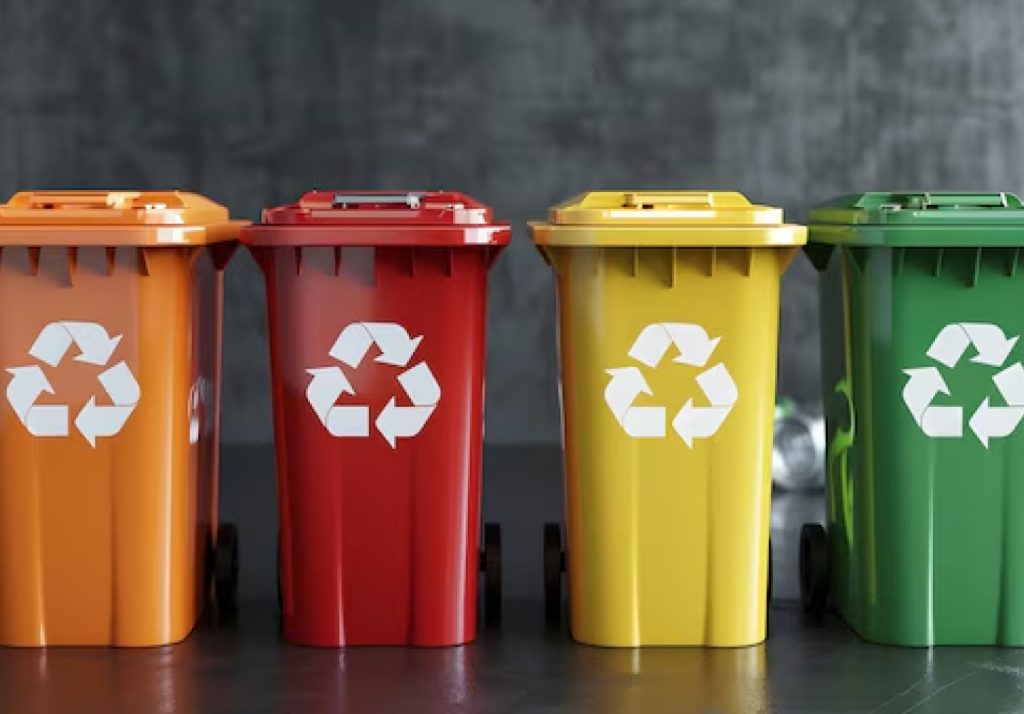
Recycling your mobile phone is an important step in reducing electronic waste and conserving resources. Fortunately, there are several convenient options available for recycling your old device.
- Retailers: Many electronic retailers provide recycling services for mobile phones and other small electronics. Stores such as Carphone Warehouse and Currys PC World often have dedicated drop-off points or recycling programs in place. These programs are designed to make it easy for customers to recycle their old devices while shopping for new ones. Simply bring your phone to the store, and they will handle the rest, ensuring that your device is processed responsibly.
- Household Waste and Recycling Centers: Local recycling centers frequently accept small electronics, including mobile phones. These centers are a great option if you prefer to recycle your phone in person. Contact your local council or check their website to find the nearest recycling center that accepts electronic devices. Many centers offer designated areas or special collection events for electronics, making it easier to dispose of your old phone properly.
How do you choose the right recycling option?
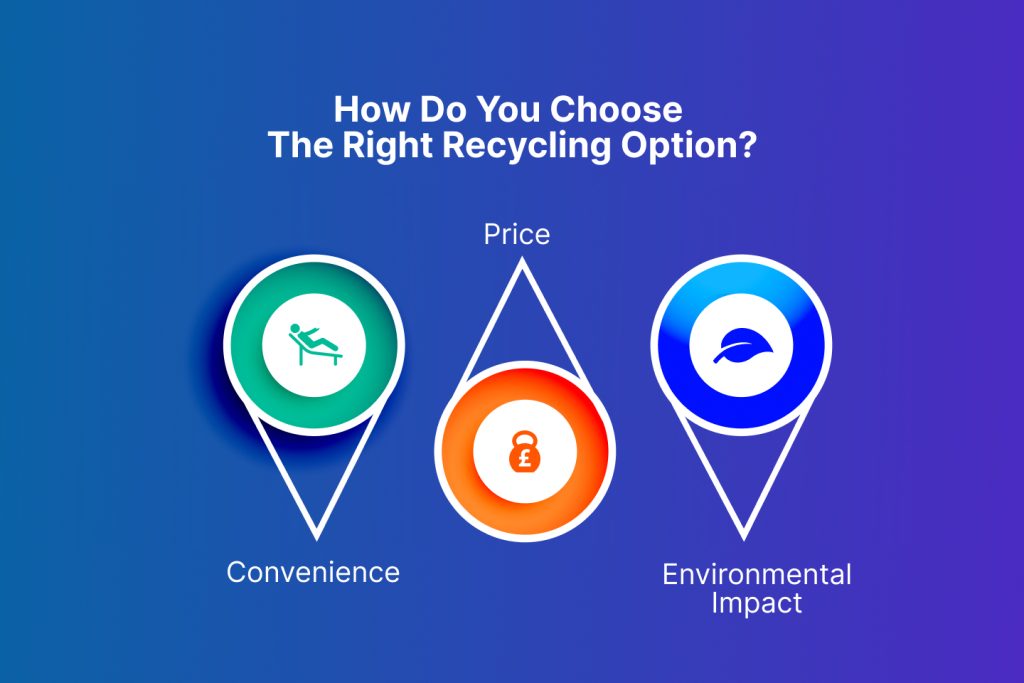
- Convenience: Evaluate how easy it is to use a particular recycling service. Some options, like mail-in programs or drop-off points at local retailers, may be more convenient than others. Choose a service that fits your schedule and preferences, whether it’s sending your phone in by mail or dropping it off at a nearby location.
- Price: If you’re interested in financial incentives, compare the quotes or offers from different recycling programs. Some programs provide cash, vouchers, or discounts on new purchases in exchange for your old phone. By comparing these offers, you can choose the option that provides the best return for your device.
- Environmental Impact: Opt for a recycling program that emphasizes responsible recycling practices and minimizes environmental impact. Look for programs that ensure all components of your phone are properly recycled or refurbished, and that adhere to environmental regulations. This choice helps ensure that your device is disposed of in an environmentally friendly manner, reducing its impact on the planet.
How to get the most cash for your old mobile phone
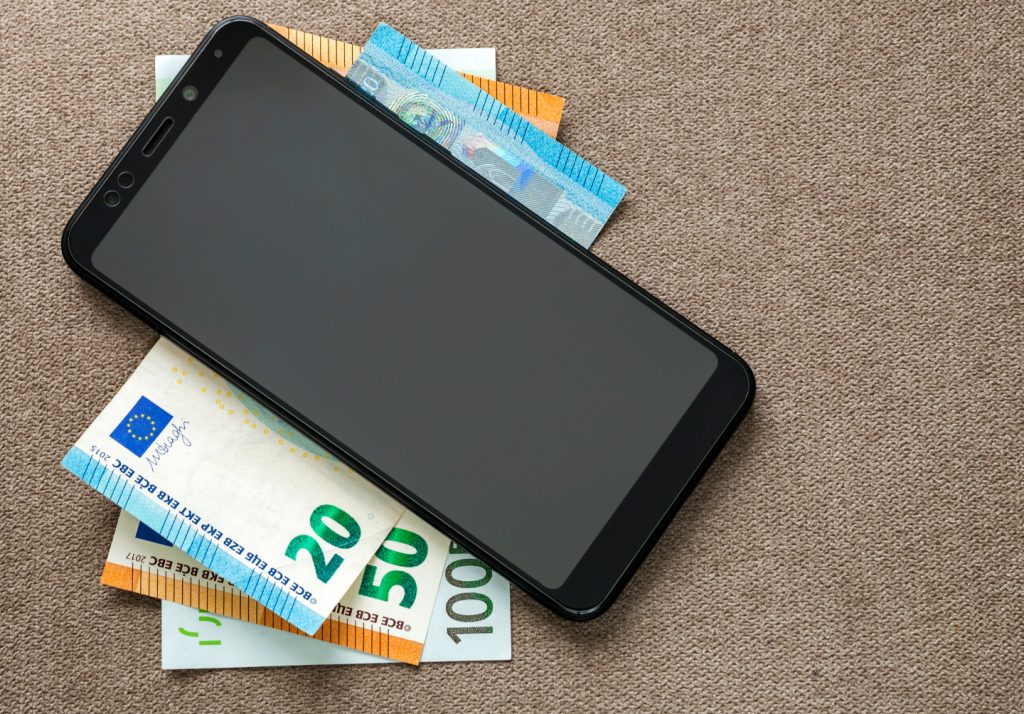
The first step to maximizing the cash return from recycling your phone is understanding the factors that influence its value. Not all phones are created equal in the eyes of recyclers. The model, age, condition, and even the accessories you include can significantly impact how much money you receive. Generally, newer models from popular brands like Apple, Samsung, and Google fetch higher prices, especially if they are in good working condition. Phones that are just one or two generations old tend to retain more value, particularly if they are flagship models. For example, an iPhone 12 or Samsung Galaxy S21 will command a higher price than an older iPhone 7 or Galaxy S8.
Another key factor is timing. Just like with any product, supply and demand affect prices. The best time to sell or recycle your phone is usually right before or just after a new model’s launch. As soon as a new version is released, the value of older models tends to drop, sometimes significantly. By selling at the right moment, you can maximize your payout.
Additionally, the condition of your phone plays a major role in determining its value. Phones in excellent or good condition will always fetch a better price. Ensure your phone is clean, has minimal scratches, and is fully functional. If your phone has minor issues—such as a cracked screen or worn-out battery—it may be worth repairing these before recycling, as the increase in value can often offset the repair costs.
Keeping your phone’s original packaging and accessories can also help increase its value. Recyclers often pay more for phones that come with the original box, charger, and headphones. These items add perceived value and make it easier for the recycler to resell the phone.
How to compare recycling prices and get an instant quote
To get the best deal when recycling your phone, it’s important to shop around. Not all recycling platforms offer the same rates for the same device, and prices can vary widely depending on where you look. Online comparison sites like CompareMyMobile or SellMyMobile allow you to enter your phone’s details and instantly see quotes from various recyclers. These tools are incredibly useful because they save you time and help you identify the best offers quickly.
Beyond comparison sites, it’s also worth checking the websites of mobile carriers and manufacturers directly. Companies like Apple and Samsung offer trade-in programs where you can exchange your old phone for store credit or cash. Sometimes, these trade-in programs offer promotional bonuses, such as additional credit during the launch of new models, which can make them more competitive than third-party recycling services.
When comparing quotes, be sure to look for recyclers that offer a “Tech Price Promise.” This is essentially a guarantee that the quoted price is what you will receive, provided the phone’s condition matches your description. This promise can protect you from unscrupulous recyclers who might lower their offer once they receive your device, citing minor or non-existent flaws.
What is a “tech price promise,” and how does it work?
The “Tech Price Promise” is a commitment by some recycling companies to honor the price they initially quote you, assuming your phone arrives in the condition you described. This is particularly valuable because it prevents the frustrating scenario where a recycler receives your phone and then offers you a much lower price due to “unexpected” damage. To benefit from this, carefully evaluate your phone’s condition before selecting it on a recycling site. Be honest about any scratches, dents, or functionality issues, as misrepresenting the condition can void the price promise.
What should you do before sending in your phone for recycling?
![]()
Before you send your phone off for recycling, there are several steps you need to take to ensure a smooth transaction and to protect your personal information. First, it’s essential to back up all your data. Whether you’re moving to a new device or simply safeguarding your information, ensure you have a copy of all your photos, contacts, and files. This can be done using cloud storage options like iCloud for Apple devices or Google Drive for Android phones.
Once your data is backed up, you need to erase all personal information from your phone. This involves doing a factory reset, which deletes all data and restores the phone to its original settings. Make sure to log out of all accounts, remove your SIM card, and take out any external memory cards. For Apple devices, don’t forget to disable the Activation Lock in your iCloud settings, as leaving it on can prevent the new owner from using the device.
Taking photos of your phone before you send it off is another good practice. Documenting the condition of your phone—showing that it matches the description you provided—can help you in case there are any disputes with the recycler over damage claims.
Alternatives to recycling your phone
While recycling is a great option for many, it’s not the only choice you have. There are several alternatives that could potentially offer more benefits, depending on your situation. One such alternative is repairing and reusing your phone. If your device is in good condition but simply outdated, consider giving it a new lease on life with a battery replacement or a screen repair. This not only saves you money but also reduces the environmental impact of disposing of old electronics.
Another option is to donate your phone to a charity. Many organizations accept old phones, refurbish them, and provide them to people in need. This is a great way to give back to the community while ensuring your phone doesn’t end up in a landfill. Alternatively, you might pass your phone on to a friend or family member who needs a device but isn’t in a position to buy a new one.
If you’re looking for a financial return but don’t want to go through a recycler, consider selling your phone directly. Platforms like eBay, Facebook Marketplace, or Gumtree allow you to list your phone and sell it to buyers looking for a second-hand device. This option usually requires more effort and comes with some risk, such as dealing with non-paying buyers or scammers, but it often results in a higher payout than recycling.
How can your old mobile phone support charitable causes?
Your old mobile phone can have a significant impact when donated to the right cause. Charities like Oxfam, Medic Mobile, and Cell Phones for Soldiers repurpose or sell old phones to fund their initiatives. Some programs provide phones to healthcare workers in developing regions or soldiers overseas, where having a mobile phone can be life-changing. By choosing to donate your phone, you’re not just getting rid of an old device—you’re supporting meaningful work that can help improve lives.
Ensuring your data is safe when recycling
Protecting your personal information should be a top priority when recycling or donating a phone. Before you send it away, make sure you have backed up all your important data to a secure location. Use built-in backup services like Google Backup or Apple iCloud to ensure you don’t lose anything important. After backing up, reset the phone to its factory settings. For extra security, manually log out of all accounts, delete sensitive data, and remove any linked payment methods.
Even if your phone doesn’t turn on, most reputable recyclers have methods to safely wipe data from devices that don’t power up. However, it’s always best to err on the side of caution and use only trusted recyclers who provide clear guidelines on data protection.
Considerations before recycling or upgrading
Recycling might seem like the obvious choice for your old phone, but it’s worth considering your other options before making a final decision. Renting a phone, for example, could be a smart choice for those who like to have the latest model without committing to ownership. This option usually comes with insurance and regular upgrade options, saving you the hassle of reselling or recycling every year.
Depreciation is another important factor. The value of mobile phones depreciates rapidly—sometimes losing 50% or more of their value within the first year. Understanding this helps you decide when to sell or recycle your phone for maximum value.
When upgrading, timing is everything. Consider waiting for trade-in offers or special deals from manufacturers and carriers. These promotions often provide additional value, making the transition to a new device smoother and more cost-effective.
What happens if I don’t recycle my phone?
If you choose not to recycle, the phone often ends up in a drawer or, worse, a landfill where its toxic components can cause environmental harm. You might also ask, “How do I know if my phone qualifies for recycling?” Most phones, regardless of condition, qualify for recycling, but the payout varies based on factors like model, age, and condition.
It’s also worth noting that some recycling programs might have small fees or shipping costs associated with sending in your phone. Always read the terms and conditions carefully to avoid any unexpected charges.
Conclusion and final thoughts
Recycling your phone can be a simple and rewarding process if done right. By comparing different options, understanding the market, and preparing your device properly, you can ensure you get the best value. The future of mobile phone recycling looks promising, with advancements in sustainable practices and an increasing focus on reducing electronic waste. Whether you choose to recycle, donate, or sell, your old phone can still have a lot of value—both to you and to others. So, next time you upgrade, take a moment to consider your options and make the most of them.